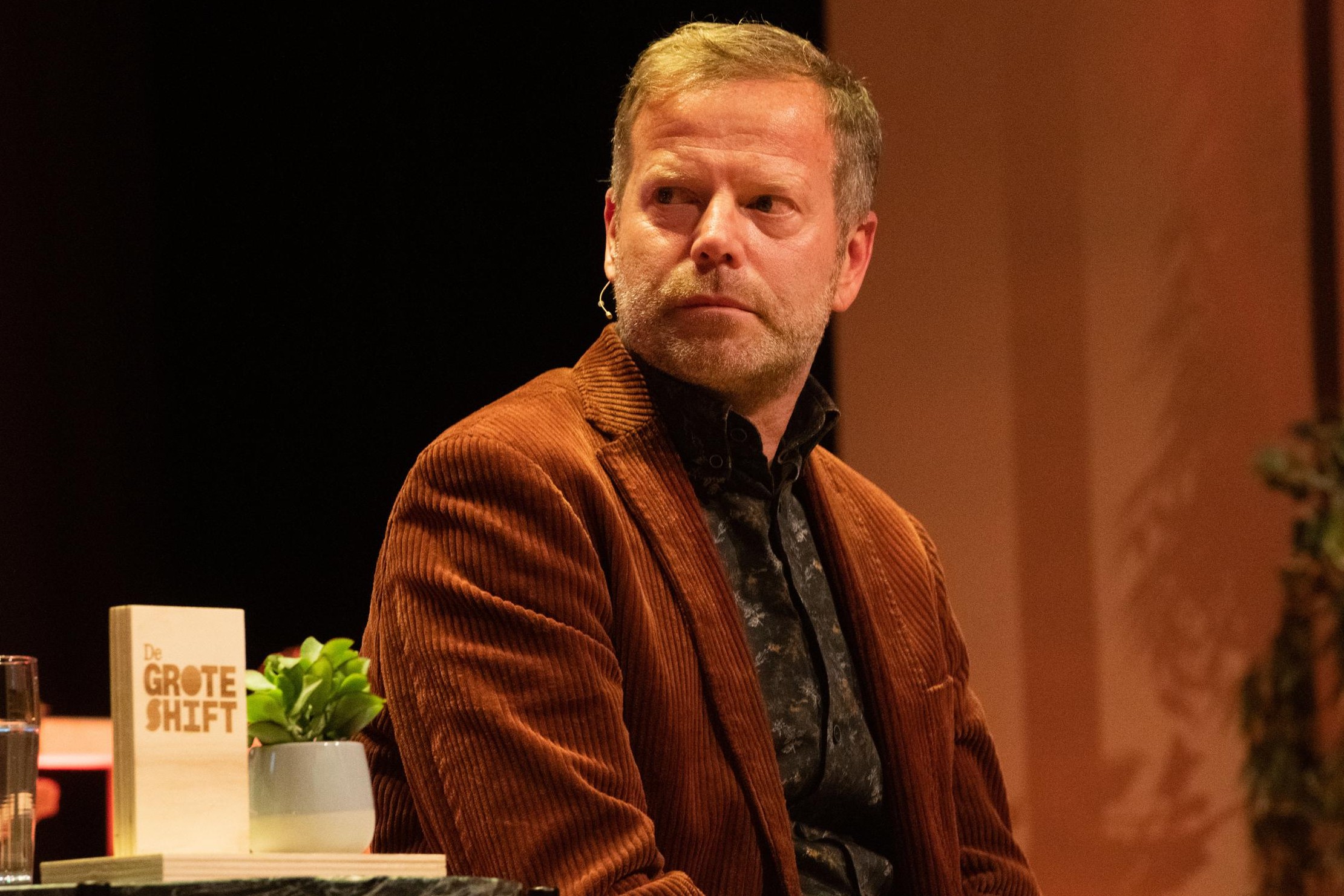In the Ghent Trade Fair, four top figures from the food sector debated for ‘De Grote Shift’, a series of climate debates by De Standaard. ‘The food system is a complex system, full of contradictions. That shouldn’t be an excuse. We must move forward quickly,’ fact-checker Erik Mathijs concluded the debate.
–
What else can we eat? And how do farmers remain allies? ‘The Great Shift’ according to Foods Benelux Unilever (Debora van der Zee), Colruyt (Stefan Goethaert), the General Farmers Syndicate (Hendrik Vandamme) and the Belgian Pork Group Westvlees (Jos Claeys). Erik Mathijs, professor of agricultural economics at KU Leuven, knows the entire chain, from farm to fork. He doesn’t just swallow anything. Below we list a few striking excerpts from the debate.
Pig farmers defend export to China, but: ‘We will eat less meat here’
General Farmers Syndicate: ‘As a sector we have to think about how we can proceed’
These promises make the top food industry figures to future generations
Unilever ‘CO2 taxes are good, but government should subsidize more’
Is organic sustainable? And can organic feed the world?
Hendrik Vandamme: ‘There is a flip side to the coin of cheap basic products’
Watch the full debate below:
Sustainable is expensive
Many questions from readers are about the contrast between sustainable and expensive versus harmful and cheap. Zero VAT for fruit and vegetables could do something about this, thinks farmer Hendrik Vandamme. Stefan Goethaert of Colruyt does not see it as the task of the supermarket to make products that are not sustainable, more expensive or sustainable cheaper.
He does expect a lot from the sustainability score that the retailer introduced, which is similar to the nutri score. ‘Results from a Spanish retailer show that 15 percent of customers have started to buy more products from category A and B (healthier categories) since the Nutriscore appeared. That’s huge. Suppose 15 percent of our customers make the same move towards more sustainable products: that is an immense impact on the climate.’
‘Fifth Belgian emission from food system’
Mathijs presented the first results showing that one fifth of the greenhouse gas emissions in Belgium come from the food system. Production made up half of that. Two surprising emitters weigh more than food transport and industrial processing: packaging and retail.
– Photo: Erik Mathijs
‘With that packaging, you should think of glass, steel and aluminum rather than plastic,’ explains Mathijs. Surprisingly again, the largest greenhouse gas emissions from the retail sector do not come from energy, but from the Freon gases used for cooling.
Deforestation for feed
Globally, the food system is responsible for 34 percent of greenhouse gas emissions. No less than 74 percent of this is linked to land use change, of which deforestation is the most important factor. In South America, for example, a lot of rainforest is disappearing to grow soy for export. Forests also have to make way for the cultivation of palm oil in Asia, for example.
Farmer Hendrik Vandamme admits that Belgian livestock still depends on imported soy. He would like European and even Belgian farmers to be able to grow soy profitably themselves. ‘For that we need new breeding techniques’, says Vandamme. He is referring, among other things, to techniques such as Crisper-Cas9, which according to the European Union fall under genetic modification, and are therefore very difficult to grow legally within the Member States.
Deforestation for food
Jos Claeys of pork company Belgian Pork Group Westvlees does not fail to emphasize that pigs are the ideal animals for recycling organic waste. They don’t need soy. He expresses his hope that bone meal (organic residues from production animals) may be reused in pig farming. This is previously prohibited for sanitary reasons.
Debora van der Zee of Foods Benelux Unilever, in turn, indicates that her company has been mapping the origin of their suppliers’ palm oil for years. “We are committed to making our palm oil supply chain 100 percent deforestation-free by 2023.”
My big question tonight is: How do we get retail (including supermarkets, ed.) to make their business model profitable when they sell less, and not more’, concludes the professor, who monitored the debate as a fact checker.
– .


